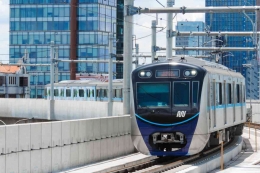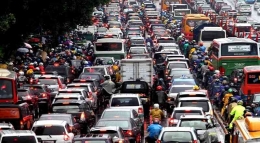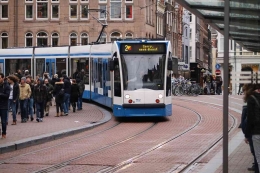And finally, from a health perspective, better air quality risks reducing respiratory and cardiovascular diseases, creating healthier cities. People who use public transport are more physically active than people who drive. In addition, public transport makes roads safer by reducing the dominance of motorized traffic. And it remains one of the safest ways to move.
Planning and the Importance of Indonesian Public Transportation in the Future
The lack of public interest and the use of public transportation in Indonesia makes traffic congestion has existed in urban areas for many years ago. Transport infrastructure and congestion issues are high on the agenda of such urban problems and reinforce the need for a broader view in tackling urban transport problems than hitherto generally employed.
Indonesia has 15 major cities with over 1 million inhabitants. Public transport in these cities is scarce and unreliable, with a low usage rate (5%-20% of trips). Hardly any consideration is given to non-motorized transport.
Cities need to enhance their technical expertise to plan, design, implement, and operate public transport systems; increase the funds to develop mass transit systems; and strengthen institutional capacity to integrate transport and spatial planning more closely.
Based on an article by the lecturer of the Department of Civil and Environmental Engineering at Gadjah Mada University, Ahmad Munawar, there are four important aspects of the Indonesian Development Plan.
According to the Indonesian Development Plan, traffic management strategies should be implemented as follows:
- Development of a mass transportation system that should be well-run with reasonable price, efficient and safe,
- Development of the road network which has the least negative environmental and social impact,
- Development integrated public transport system, and
- Development of traffic management strategies to achieve high efficiency and high quality of service.
Indonesia has experienced a drastic rise in motorized transport over the last two decades, caused by subsidized fuel, rising incomes, and low-interest rates for vehicle loans.
In combination with the limited infrastructure, rapid motorization exacerbates the adverse environmental impact of transport: the sector currently accounts for 70%-80% of all outdoor air pollution in the country (including particulate matters), and 23% of greenhouse gas emissions.
Low transport infrastructure performance and capacity are one of the most critical barriers hindering Indonesia's competitiveness and fueling social inequality across the archipelago. Indonesia ranked only 63rd in the 2016 Logistics Performance Index.
The country's global ranking has decreased by ten positions since 2014, mainly due to the deterioration of its infrastructure---one of the worst within the Association of Southeast Asia Nations countries (ASEAN), and far behind its closest neighbors such as Malaysia or Singapore.













